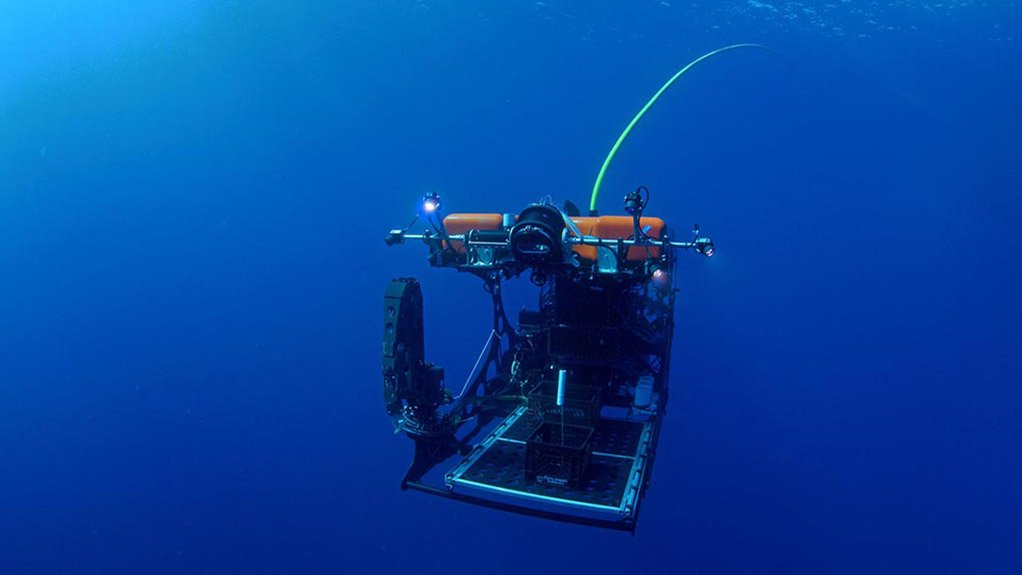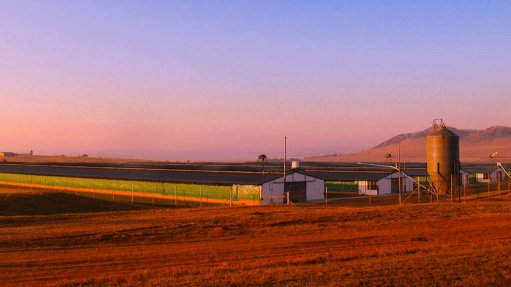At international deep sea mining meeting, debate moves behind closed doors
Delegates to the UN-affiliated organization that regulates seabed mining cut a livestream of their negotiations Wednesday and retreated behind closed doors in an attempt to resolve a dilemma the could determine the fate of the deep ocean.
The International Seabed Authority missed a deadline on July 9 to enact regulations to allow the mining of deep sea ecosystems for valuable metals used in electric car batteries. That means the Authority must accept license applications from mining companies. But the question of whether it must act— and how—on any submissions in the absence of environmental safeguards has stymied the Council, the Authority’s 36-member policymaking body that has been meeting at the ISA’s Kingston, Jamaica, headquarters for the past two weeks.
While delegates negotiated out of sight, observers from environmental groups huddled in conversation outside the Council chambers at the Jamaica Conference Center, a sort of tropical UN. Louisa Casson, a Greenpeace campaigner, worries a compromise could commit the ISA to reviewing mining license applications by a certain date even if regulations still aren’t in place.
“It would be outrageous for negotiators here to cook up a deal that sets a start-date for this risky industry,” Casson tells me. (As of Wednesday night, no deal was announced.)
The Authority is perhaps the world’s most unusual international institution with extraordinary powers to determine the future of the deep ocean, the world’s last untouched wilderness. Pushed by Nauru, a tiny Pacific island nation, and an investor-backed seabed mining venture, the ISA this month is continuing to negotiate regulations that could allow mining to begin.
The 1982 UN Convention on the Law of Sea created the Authority to promote the exploitation of the seabed in international waters for the benefit of humankind while, seemingly contradictorily, ensuring the effective protection of the marine environment. The treaty also directed the Authority to establish the Enterprise, a for-profit corporation to mine the seabed and share revenues and technology with developing nations. In other words, the Authority will regulate its own company.
For decades, the ISA had toiled away out of sight and out of mind writing rules for an industry that seemed far in the future. This week, as extreme climate-driven heat waves broil the planet’s biosphere, the regulations’ final details are still being hammered out — and could go into effect as early as next year. Now, though, the world’s watching.
A growing number of the Authority’s 168 member nations (plus the European Union) are calling for a moratorium or pause on deep sea mining due to a severe lack of scientific knowledge about the seabed ecosystems targeted for exploitation. (The ISA has issued 31 licenses to mining contractors to explore the seabed for minerals but none are yet allowed to start mining.) Environmental activists, meanwhile, are pressuring corporations to pledge not to use or finance seabed minerals lest they have the blood of otherworldly seabed-dwelling critters like “Casper” the ghost octopus on their hands.
For a few weeks each year, Kingston is transformed into a diplomatic hub as hundreds of member state delegates, NGO observers and mining contractors descend on the capital, whisked from their hotels to the Authority’s harborside headquarters by a police escort that barrels through city streets, lights flashing and sirens blaring. But escalating controversy has disrupted the Authority’s clubby atmosphere, where the annual meetings long had the air of a family reunion.
Matthew Gianni, co-founder of an alliance of environmental groups called the Deep Sea Conservation Coalition, recalls weekend retreats at a Jamaican resort where ISA participants would mingle. “People really did socialize—contractors dancing with NGOs, NGOs with delegates,” he says. “Nobody was really taking strong positions on things back then and the negotiations were fairly easy-going.”
The first ISA meeting I attended was in 2017. I was the only journalist there, and back then, mining the seafloor still seemed a decade or more away. There were cocktail receptions on the lush grounds of the British High Commission and gathering at the hilltop estate of the secretary-general’s official residence.
The vibe was decidedly different when I walked into the ISA on Monday for the first time since the pandemic. Armed security guards and police roamed the building and media were only permitted to attend one week of the three-week session and barred from the meeting chamber when delegates are in session.
Tensions have been rising since 2021 when Nauru triggered a rule requiring mining regulations to be enacted within two years. That focused global attention on the Authority and its closeness to the mining contractors it regulates. Nauru is the ISA state sponsor of The Metals Company, a Canadian-registered firm, and it invoked the two-year provision shortly after executives told potential investors they expected to begin mining in 2024. That started a countdown to finish a complex set of regulations that had been the works for more than five years.
Temperatures at the Authority are likely to rise in the final two days of the Council session this week as delegates try to resolve what to do about mining applications. At the same time, they’re trying to come to terms on regulations that involve everything from setting royalties on mining revenues and how to share them among member states to establishing environmental inspection and compliance procedures.
The ISA Assembly, which is comprised of all member states, meets next week. Although it is the Authority’s final arbiter and usually approves the Council’s decisions, mining opponents plan to take their case to the Assembly’s 169 members. Chile, France, Palau and Vanuatu have submitted a proposal to the Assembly to prohibit the approval of any mining licenses until regulations are enacted.
Comments
Press Office
Announcements
What's On
Subscribe to improve your user experience...
Option 1 (equivalent of R125 a month):
Receive a weekly copy of Creamer Media's Engineering News & Mining Weekly magazine
(print copy for those in South Africa and e-magazine for those outside of South Africa)
Receive daily email newsletters
Access to full search results
Access archive of magazine back copies
Access to Projects in Progress
Access to ONE Research Report of your choice in PDF format
Option 2 (equivalent of R375 a month):
All benefits from Option 1
PLUS
Access to Creamer Media's Research Channel Africa for ALL Research Reports, in PDF format, on various industrial and mining sectors
including Electricity; Water; Energy Transition; Hydrogen; Roads, Rail and Ports; Coal; Gold; Platinum; Battery Metals; etc.
Already a subscriber?
Forgotten your password?
Receive weekly copy of Creamer Media's Engineering News & Mining Weekly magazine (print copy for those in South Africa and e-magazine for those outside of South Africa)
➕
Recieve daily email newsletters
➕
Access to full search results
➕
Access archive of magazine back copies
➕
Access to Projects in Progress
➕
Access to ONE Research Report of your choice in PDF format
RESEARCH CHANNEL AFRICA
R4500 (equivalent of R375 a month)
SUBSCRIBEAll benefits from Option 1
➕
Access to Creamer Media's Research Channel Africa for ALL Research Reports on various industrial and mining sectors, in PDF format, including on:
Electricity
➕
Water
➕
Energy Transition
➕
Hydrogen
➕
Roads, Rail and Ports
➕
Coal
➕
Gold
➕
Platinum
➕
Battery Metals
➕
etc.
Receive all benefits from Option 1 or Option 2 delivered to numerous people at your company
➕
Multiple User names and Passwords for simultaneous log-ins
➕
Intranet integration access to all in your organisation





















